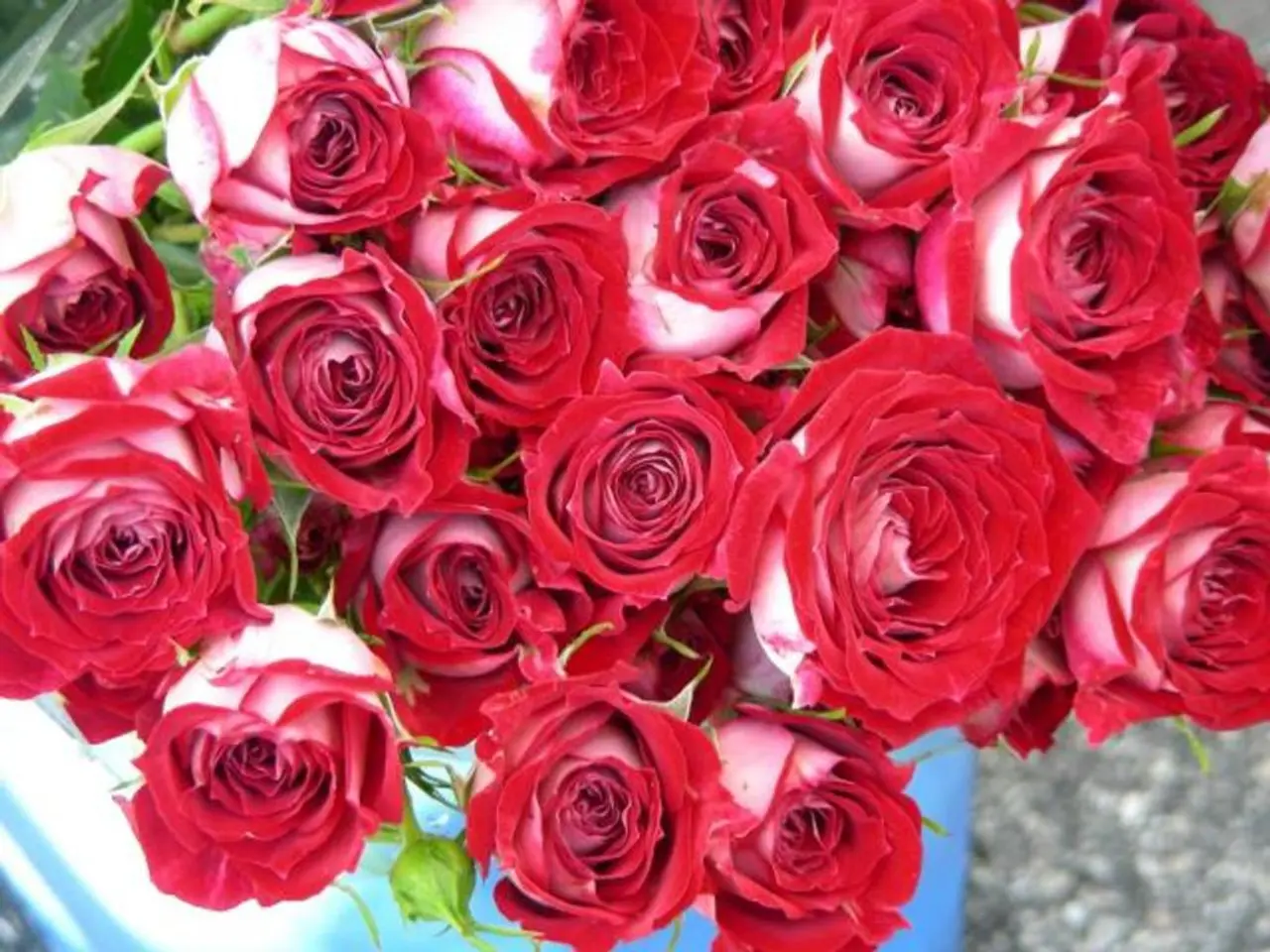Maintaining Capillary Appearance Through Rose Petals: Skin Benefits Revealed
In the realm of skincare and wellness, rose petal extract has been gaining attention for its potential benefits in preventing varicose veins. While the research on this topic is still evolving, the natural properties of rose petal extract suggest a promising role in maintaining vascular health.
One key aspect of rose petal extract is its ability to improve blood circulation. By promoting better blood flow, rose extracts can help prevent blood pooling, a significant factor in varicose vein formation. Additionally, rose extracts act as gentle astringents, tightening the skin and shrinking pores. This skin-firming property may support the underlying vein structure, potentially reducing vein enlargements.
Moreover, rose petal extract is rich in hydration and antioxidants, which can protect blood vessels from oxidative damage and maintain healthy endothelial function, crucial for proper circulation.
However, it's important to note that while these properties suggest a beneficial role in vascular health, there is no specific direct clinical evidence that rose petal extract treats or prevents varicose veins. Nevertheless, improved circulation and reduced inflammation are key in preventing varicose veins, and rose petal extract contributes to both by promoting skin health and mild astringency.
Beyond rose petal extract, there are other measures to prevent varicose veins. Daily massages on the lower limbs can stimulate blood circulation, helping to prevent varicose veins from forming. Conversely, avoiding extreme temperatures, such as hot showers, saunas, and steam rooms, can help prevent the appearance of varicose veins from becoming more prominent. Cold showers or ending a shower with cold water can also help stimulate blood circulation.
Topical oils or cosmetic products with anthocyanosides or heterosides in their formulation can aid in reducing capillary permeability and increasing capillary resistance, potentially preventing varicose capillaries.
A sedentary lifestyle can lead to weakened vein strength, causing veins to struggle to push blood back to the heart. Engaging in regular physical activity can help strengthen veins and improve overall blood circulation, potentially preventing varicose veins.
Pregnancy can cause swelling and extra pressure on veins, leading to varicose veins in the pelvis or legs. Women are more likely to develop varicose veins due to hormones such as Estrogen and Progestogen causing vein walls to relax.
Varicose veins are dilated veins that struggle to circulate blood properly, often appearing blue and purple on the lower limbs. They are not typically life-threatening but can be a cosmetic nuisance or source of insecurity for many people.
In the market, Provital's Pale Rose Extract stands out as a certified Halal and Cosmos-Approved product, offering benefits to one's vein health and appearance. Formulated to be a blood circulation stimulant, venotonic, and anti-varicose veins, it serves as a great preventative measure for improving blood circulation and potentially preventing varicose capillaries.
In conclusion, while the evidence is not yet conclusive, the natural properties of rose petal extract suggest a potential role in preventing varicose veins by improving vascular and skin health. Regular physical activity, massage, and careful management of temperature exposure can also contribute to maintaining healthy veins and reducing the risk of varicose veins.
- In the realm of men's health and fitness-and-exercise, regular physical activity can help strengthen veins and improve overall blood circulation, potentially preventing varicose veins.
- The science of skin-care has revealed that topical products with anthocyanosides or heterosides in their formulation can aid in reducing capillary permeability and increasing capillary resistance, potentially preventing varicose capillaries.
- Women's health research shows that pregnancy can cause swelling and extra pressure on veins, leading to varicose veins in the pelvis or legs, and women are more likely to develop varicose veins due to hormones such as Estrogen and Progestogen.




